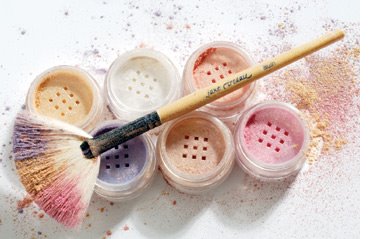 A new study suggests that overexposure to chemicals found in thousands of consumer goods - including food and beverage containers – could be causing problems in the bedroom for men- and their partners. Here's what you need to know.
A new study suggests that overexposure to chemicals found in thousands of consumer goods - including food and beverage containers – could be causing problems in the bedroom for men- and their partners. Here's what you need to know.
By Colette Bouchez
If a group of Chinese researchers are right, you may want to keep your partner from snacking on canned ravioli and beer. The reason: You just might see the after-effects in the bedroom - and not in a good way.
If a group of Chinese researchers are right, you may want to keep your partner from snacking on canned ravioli and beer. The reason: You just might see the after-effects in the bedroom - and not in a good way.
Indeed, new research published this week in the journal Human Reproduction found that bisphenol A or BPA - a chemical found in thousands of consumer products including the linings of food and beverage cans – may, in fact, be responsible for a wide range of sexual dysfunction problems in men, including erectile dysfunction and possibly infertility.
Head researcher De-Kun Li recently told the Washington Post “ Critics dismissed all the animal studies saying 'Show us the human studies'; now we have a human study and this just can't be dismissed,” he said.
The five year study followed 634 male works from four Chinese factories where exposure to BPA was significant. Researchers then compared the incidence of sexual dysfunction among these men with a control group who did not have workplace exposure to BPA.
The result: The men who were exposed to the BPA were four times more likely to suffer from erectile dysfunction and seven times as likely to have difficulty with ejaculation.
Moreover, it didn't take long periods of exposure for the sexual problems to kick in. Indeed, men who worked in the factories only a matter of months appeared to be as affected as those who spent years being exposed to the chemical.
In other research it has been shown that men who have either erectile dysfunction or ejaculation problems also experience a higher rate of infertility – and now some researchers are wondering if the two problems aren't “chemically” connected.
WHAT IS BPA - & WHERE IS IT HIDING?
BPA is a form of synthetic estrogen that is significant component in polycarbonate plastic.
Unfortunately, baby bottles – or even water bottles – are not the only place where BPA is lurking. Indeed, as a component of the “hard” plastic, BPA is found in literally thousands of consumer products used in food preparation or serving - including kitchen utensils, food storage containers, plastic mugs ( especially travel mugs), and inside the linings of some food and beverage cans. And it is, in fact, this food connection that is the cause for alarm.
Studies show the BPA in these containers and utensils can leach into food . Moreover, certain related factors, including heat, acid, age, microwaving and the use of certain harsh detergents can increase the likelihood of this happening, according to Frederick vom Saal, a biology professor and BPA researcher at the University of Missouri.
Moreover, it's not just your partner who should be concerned. Indeed, studies show that BPA is also linked to an increased risk of breast cancer - in both younger an older women.
Moreover, it's not just your partner who should be concerned. Indeed, studies show that BPA is also linked to an increased risk of breast cancer - in both younger an older women.
HOW MUCH BPA IS TOO MUCH BPA?
Clearly, the research shows that the men in the Chinese studies were routinely exposed to levels of BPA 50 times higher than the average North American man. And to this end, the American Chemical Society – which represents many manufacturers who use BPA in products - says the new study holds little concern for most Americans.
Indeed, Steven G. Hentges of the ACC recently told the press “ Although this study represents interesting information it has little relevance to average consumers who are exposed to trace levels of BPA,” he said.
Unfortunately, however, the “low dose” logic may not apply in this scenario. While traditional toxicology screens equate high doses of chemical contaminants with increased harm, specific tests on BPA show that lower doses may be even more toxic, simply because they “slip by” the body's natural defense system that would otherwise go to work detoxifying substances before they do harm.
In fact, in one study, low dose BPA exposure increased the risk of prostate cancer by 70% over high dose exposure, in lab animals.
Moreover, some experts contend that with so many products containing BPA, low level exposure may actually be chronic and continuing making it virtually impossible to calculate how much each man is getting – or how widespread that exposure might be among men already experiencing the symptoms represented in the study.
“Obviously some men are exposed more than others, and we do know that genetics also play a role, but that said, the association raises a red flag we shouldn't ignore – and it's definitely something that couples who are grappling with infertility should not ignore,” says Lauersen. Other studies have also shown BPA may have the potential to harm a woman's eggs thus further increasing fertility risks.
Because food and drink containers are such a large source of BPA, at least some of stink from this chemical cloud is hovers over the US Food and Drug Administration, which has been widely criticized for not regulating the chemical in the United States. Indeed, even their own scientific advisory committee voiced discontent over the fact that the FDA appears to ignoring more than 100 studies linking BPA to adverse health effects in animals including infertility, weight , behavioral changes, early -onset puberty, cancer and diabetes.
While the agency has reportedly pledged to re-examine the issue, to date, the FDA has maintains that BPA is safe. At the same time, the Canadian government has drafted legislation to prohibit the importation, sale and advertising of polycarbonate baby bottles that contain bisphenol A (BPA), and it has allocated 1.7 million dollars to further research the health effects of this chemical particularly in relation to food containers.
WHAT TO DO RIGHT NOW:
Colette Bouchez is the co-author of the new book "The New Fertility Diet Guide: Delicious Food Secrets To Help You Get Pregnant Faster ( Ivy League Press, NY )
Copyright by Colette Bouchez 2009 - All Rights Reserved.
In addition to US Copyright, the text of this RedDressDiary article is licensed under a Creative Commons Attribution-ShareAlike 3.0 License. All formatting and style elements of this page are not available under this license, and Colette Bouchez retains all rights in those elements.




































thank for this article
ReplyDelete